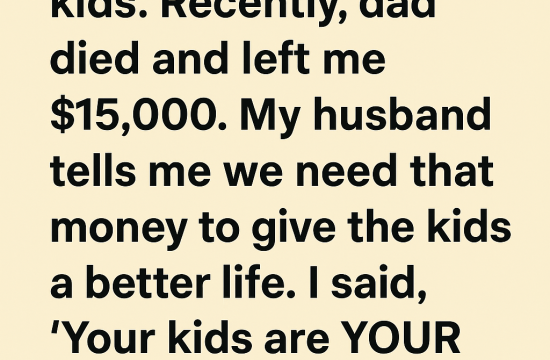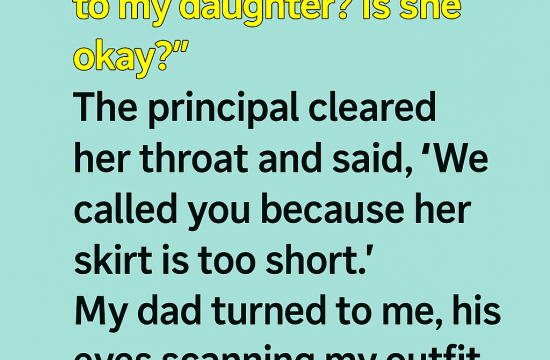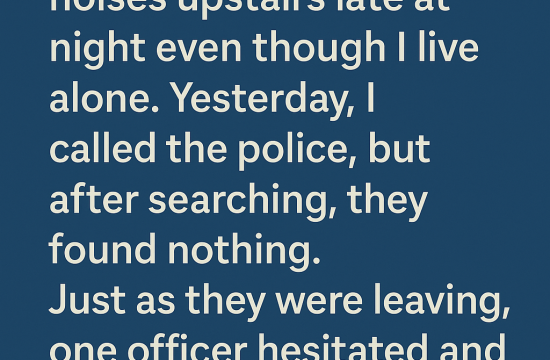After months of hard work, I was finally on vacation when my boss texted:
“Share your live location. I need to make sure you’re actually on holiday.”
Her messages kept escalating until I told her to back off. But what I didn’t know then was that her obsession wasn’t about trust at all—it was about something much bigger, and much uglier.
A Vacation Interrupted
I had saved nearly a year for this trip. Overtime shifts, tedious projects, and weekends sacrificed—I’d poured everything into making it happen. Turning 35 felt like the right milestone to finally reward myself. Portugal had always been my dream, and when I landed in Lisbon, the world suddenly felt lighter, like I’d earned every single breath.
That’s when the first message buzzed my phone.
“Can you share your live location, just so I know you’re truly off the grid?”
Confused, I stared at it. Mirella, my boss, was strict, sure, but this felt… intrusive. I asked why.
“Company protocol. Just for accountability.”
Except it wasn’t. No such rule existed. Against my better judgment, I sent a one-time ping, thinking it would calm her down. Instead, the opposite happened.
Surveillance in Paradise
The texts multiplied. Daily. Twice a day. Then stranger:
“Why are you near a coworking space?”
“Send a photo of your hotel room.”
“You’re on the move a lot. Are you meeting someone?”
By the third day, I snapped.
“Mirella, please stop. This is getting weird.”
Her reply froze my blood.
“You don’t understand what’s at stake. I need to know who you’re seeing.”
What did she mean?
I thought of Sandra, a coworker who’d quit suddenly, and Akshay, who’d disappeared after an “HR review.” I remembered Sandra once whispering that Mirella had grilled her about her personal life—who she was dating, whether she had “divided loyalties.”
Suddenly, her behavior wasn’t just paranoia. It was fear.
The Pieces Click Together
I blocked her number, but the paranoia didn’t vanish. Strangers viewed my Instagram stories. A man in a grey hoodie snapped photos of me at lunch before hurrying away. By the time I returned home, I had more unease than rest.
On Monday, Mirella greeted me with a wide smile, pretending nothing had happened. When I confronted her about the texts, she laughed it off. “Just making sure you’re really taking a break. You know me—mental health and all.”
But her eyes betrayed her.
The Truth Comes Out
Two weeks later, I met Sandra and Akshay for drinks. Away from the office, they finally told me everything.
Mirella had been running a shadow business—stealing company resources and selling them to competitors. Marketing decks, client lists, insider strategies. She disguised the work as “prep tasks,” getting her team (us) to unknowingly create the very material she sold.
Sandra leaned in. “She only cuts people loose when she thinks they’ve seen too much.”
Akshay nodded grimly. “I found out by accident. A pitch deck I made ended up at a firm registered to her shell company. That’s when I knew.”
Her surveillance of me suddenly made perfect sense. She didn’t think I was slacking. She thought I was catching on.
Fighting Back
I went home shaking. I had two options: ignore it and wait for her to scapegoat me—or fight back.
I chose to fight.
Quietly, methodically, I gathered evidence. Emails. Files. Screen recordings of Zoom calls where she slipped instructions like, “Copy Client X’s pricing model—prep it for a partner who might need a mirror approach.”
Two months later, I submitted a 36-page dossier to the company’s legal team through their anonymous whistleblower portal.
The Fall of Mirella
For weeks, silence. Then one Monday, the glass conference room filled with unfamiliar suits. Mirella sat pale, cornered. By lunch, her office was empty. By Friday, an all-staff email confirmed it:
“Effective immediately, Mirella Esposito is no longer employed by our firm.”
No thank-you, no recognition. But I didn’t need it. Sandra was reinstated, Akshay was brought back as a consultant, and I was promoted into a newly created role outside her old department. The company overhauled its reporting systems.
Mirella tried suing. She lost. Last I saw, she popped up at a struggling startup overseas. Good riddance.
What I Learned
What stayed with me wasn’t her downfall, but the lesson.
When people act paranoid and controlling, sometimes it isn’t about you at all. It’s about them hiding something rotten. Their fear of exposure makes them treat everyone like a threat.
So if someone ever watches you a little too closely, remember:
They might not be guarding you.
They might be guarding their secret.











